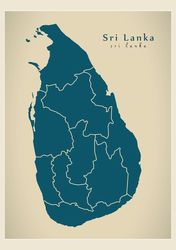It takes a community. Especially when bringing the Internet to an entire nation.
At the 2013 Internet Hall of Fame induction ceremony in Berlin, Germany, Gihan Dias recalled the introduction of the Internet to Sri Lanka, his native country, underscoring that it was a labor of love undertaken by an entire community of people.

“I’m really grateful for this honor,” he said. “But, really, it is not just me. There were many, many people behind this.”
In the mid-80s, Dias was a graduate student at the University of California. “We found this great technology called email, which allowed us to talk to each other,” he said. “But, we didn’t have that back in Sri Lanka.”
So, Dias and a group of colleagues created a network called SLNet, or Sri Lanka Net. Initially set up to “get news from Sri Lanka,” Dias said, “We realized, here is a good way for people in U.S., Canada, Australia and England and all over the world, to talk to each other.”
The network grew. “That was really one of the first social networks, there were others, but one of the first, which was set up globally, long before the (term) social network was ever coined,” he noted.
The Lanka Academic Network – a nonprofit, volunteer organization of Sri Lankan students, teachers and professionals – was set up to fund the project. “This is how it all started,” Dias said.
A few years later, Dias embarked to establish the Internet in Sri Lanka. “The funding came from this same community,” he explained, and international supporters like the Government of Sweden.
By the early 2000s, an Internet infrastructure was established and networks were connected around the country, but other obstacles remained.
“In our country we have two different languages, Sinhala and Tamil, which are written in different scripts, not the Latin script we use in English,” Dias said. “We want to make sure all the computers, mobile phones, tablets… they are all able to speak to people in our own language. That’s what I have been focusing on in recent years.”
As the Internet has evolved in Sri Lanka and around the globe, additional issues have arisen, Gihan said.
“We need to make this Internet useful to everyone,” he asserted. “Translation is a major part of the equation. If you can’t understand what’s on the net, or can’t make yourself understood, then it’s no better than not being on the net.” So we’re now working on translation, both from global languages such as English to our national languages, and between our national languages.
“We had 25 years of war, partly because we couldn’t understand each other,” said Dias. “We don’t want this to ever happen again.”
Other big issues are cybersafety and privacy. “We need to ensure that people, including children, are not endangered by being on the net; and that we do not give up our privacy and our rights just to access the net. So, there is a lot more work to be done.”